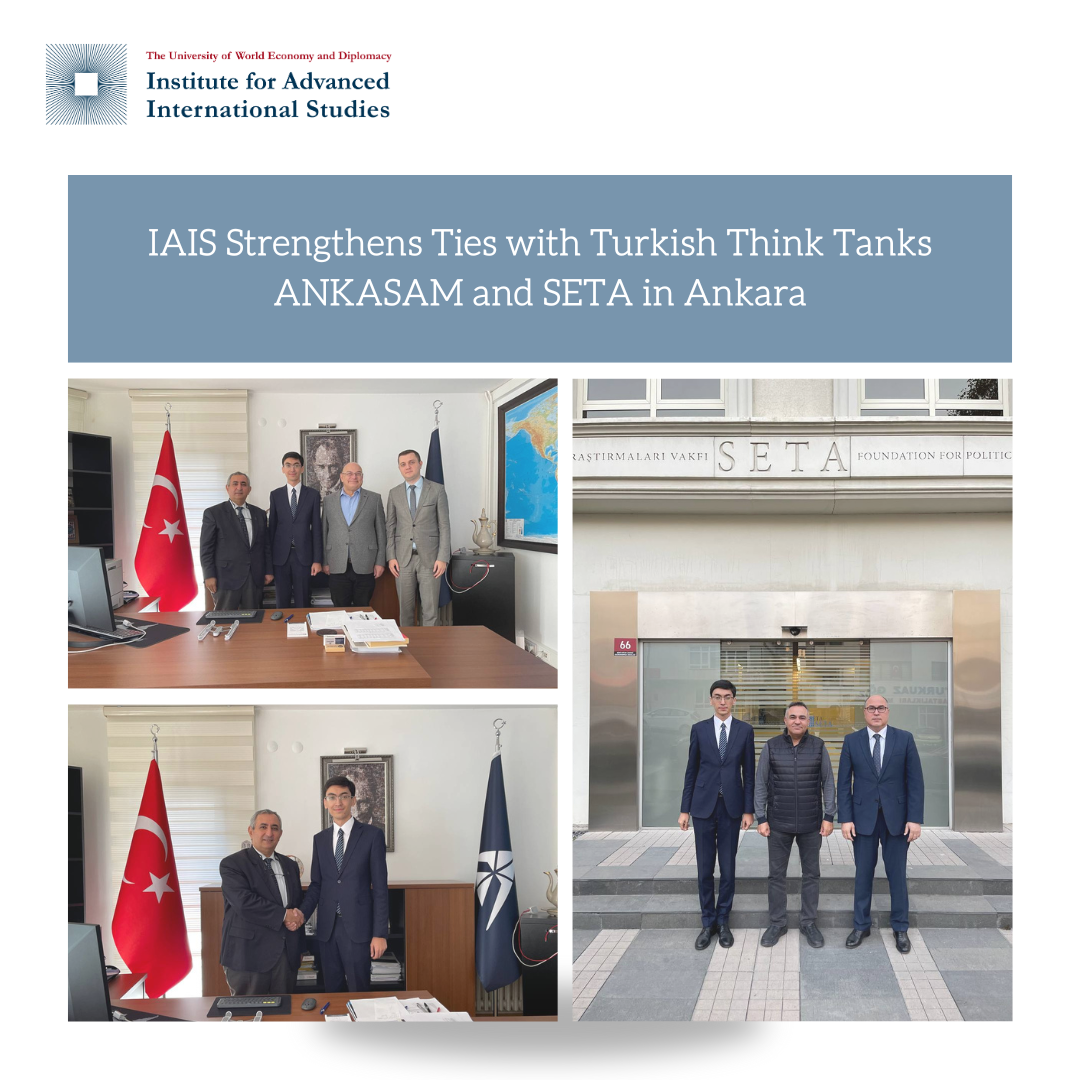
On 1 November, Fazliddin Djamalov, Leading Research Fellow at IAIS, during his research visit to Ankara engaged with prominent Turkish think tanks to explore avenues for collaboration and strategic analysis. He held discussions with leading experts from the Ankara Centre for Crisis and Policy Research (ANKASAM) and the Foundation for Political, Economic and Social Research (SETA), focusing on pivotal geopolitical and regional issues.
During his visit to ANKASAM, Mr. Djamalov met with Professor Mehmet Seyfettin Erol, the founding director of ANKASAM, and Cem Karadeli, his chief advisor. Opening the dialogue, Professor Erol shared his insights on Middle Eastern issues, a key area of Turkish interest. Discussions then turned to Turkey’s transportation and logistics potential, particularly concerning the “Middle Corridor” project, which aims to enhance connectivity between Asia and Europe. Turkish experts underscored Uzbekistan’s crucial role in the project, highlighting the growing partnership between the two nations. Concluding their talks, both sides expressed a commitment to initiating practical dialogue between analytical institutions in Uzbekistan and Turkey, with ANKASAM experts offering to publish individual and joint research articles on their online and print platforms.
For reference: ANKASAM, a prominent Ankara-based research institution, was established in 2017 as an independent entity within the International Association for Friendship, Cooperation and Strategic Studies (UDISAD). Specialising in Asian regional dynamics, ANKASAM encompasses four regional institutes, including the Afghanistan-Pakistan Institute, the Asia-Pacific Institute, the Eurasian Institute, and the Central Asia Institute, each structured to address complex geopolitical issues since their restructuring in 2020. ANKASAM also operates “The Asia Today”, an online newspaper, alongside two periodic journals, providing a platform for expert analysis on diverse topics.
Later that day, Fazliddin Djamalov met with Murat Aslan, a senior researcher at SETA and an associate professor at Hasan Kalyoncu University. In discussions with Mr. Aslan, the conversation centred on Middle Eastern issues, followed by Turkey’s logistics capabilities and its strategic vision for the Organisation of Turkic States. As the meeting concluded, both parties agreed to pursue institutional exchanges to foster participation in conferences and events, as well as to collaborate on joint research initiatives between Uzbek and Turkish experts, strengthening the ties between their research communities.
For reference: Founded in 2006, SETA is one of Ankara’s leading think tanks, known for its research across political, economic, and social spheres, aimed at informing state institutions, political parties, and policymakers. Despite positioning itself as an independent, non-profit organisation, the centre is viewed by some observers, such as Deutsche Welle, as being under the influence of Turkish President Recep Tayyip Erdoğan. SETA maintains offices in Istanbul, Washington, and Cairo, and publishes “Insight Turkey”, a scientific journal indexed in the European Science Journal (ESJ) database.
In conclusion, Fazliddin Djamalov’s engagements with ANKASAM and SETA, facilitated by the Uzbek Embassy in Türkiye, mark a significant step toward fostering closer cooperation between Uzbek and Turkish research communities. The embassy’s support underscored the shared strategic interests between the two nations, particularly in regional stability, transportation corridors, and strengthening the Organisation of Turkic States. Both parties agreed to further dialogues and collaborative research, paving the way for ongoing intellectual and policy exchanges that could enhance regional cooperation and provide critical insights for future developments in Central Asia and beyond.